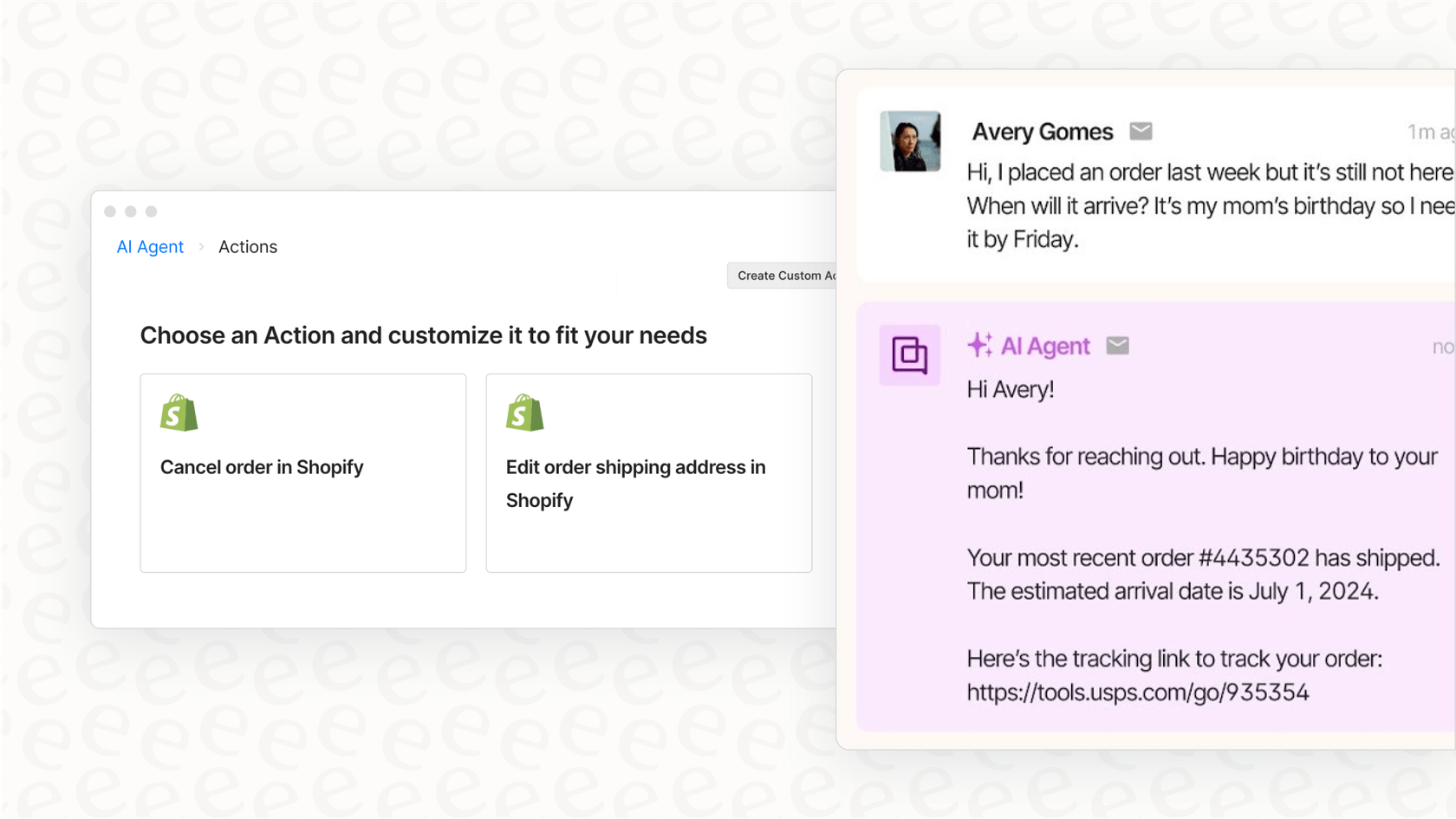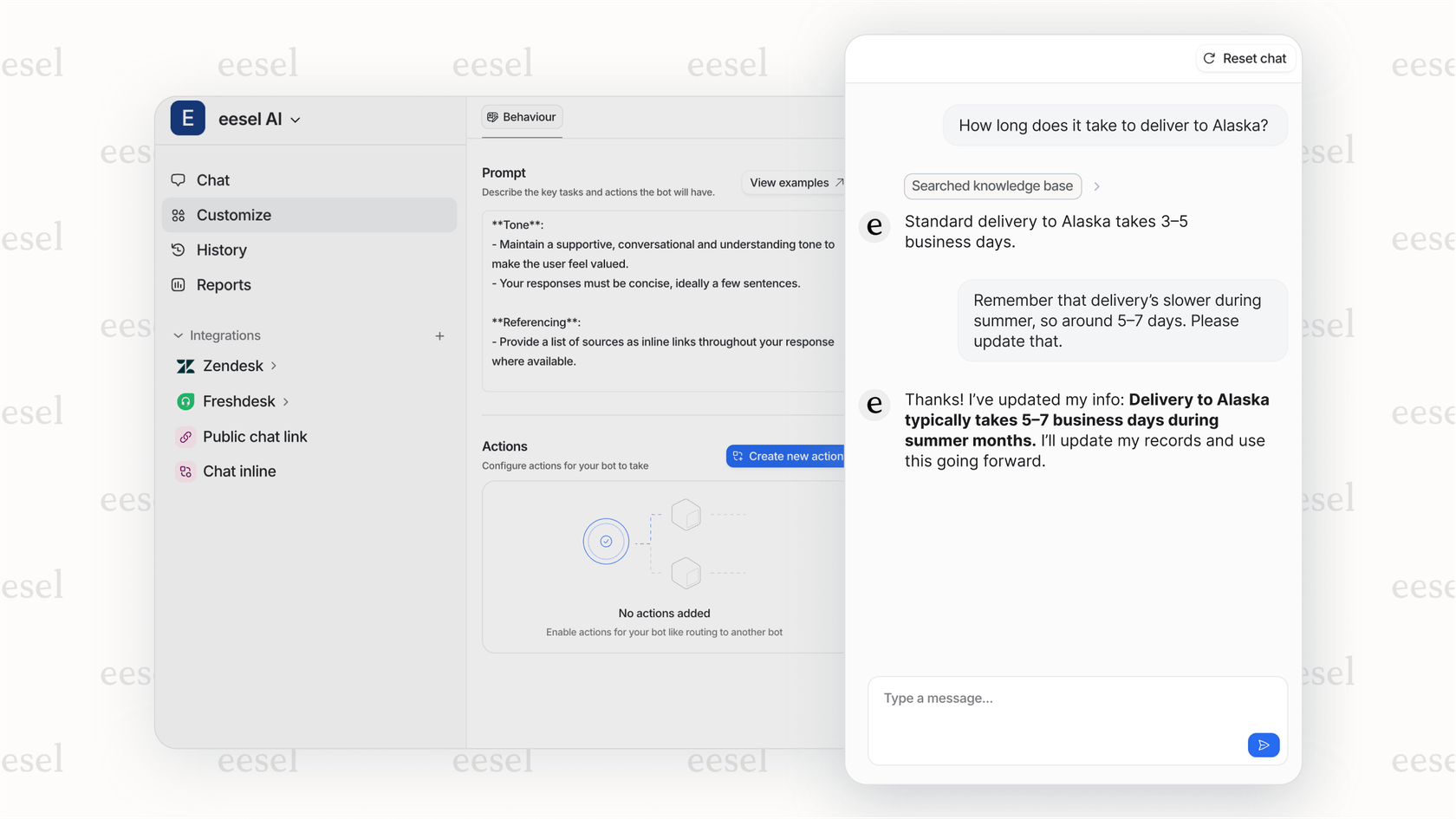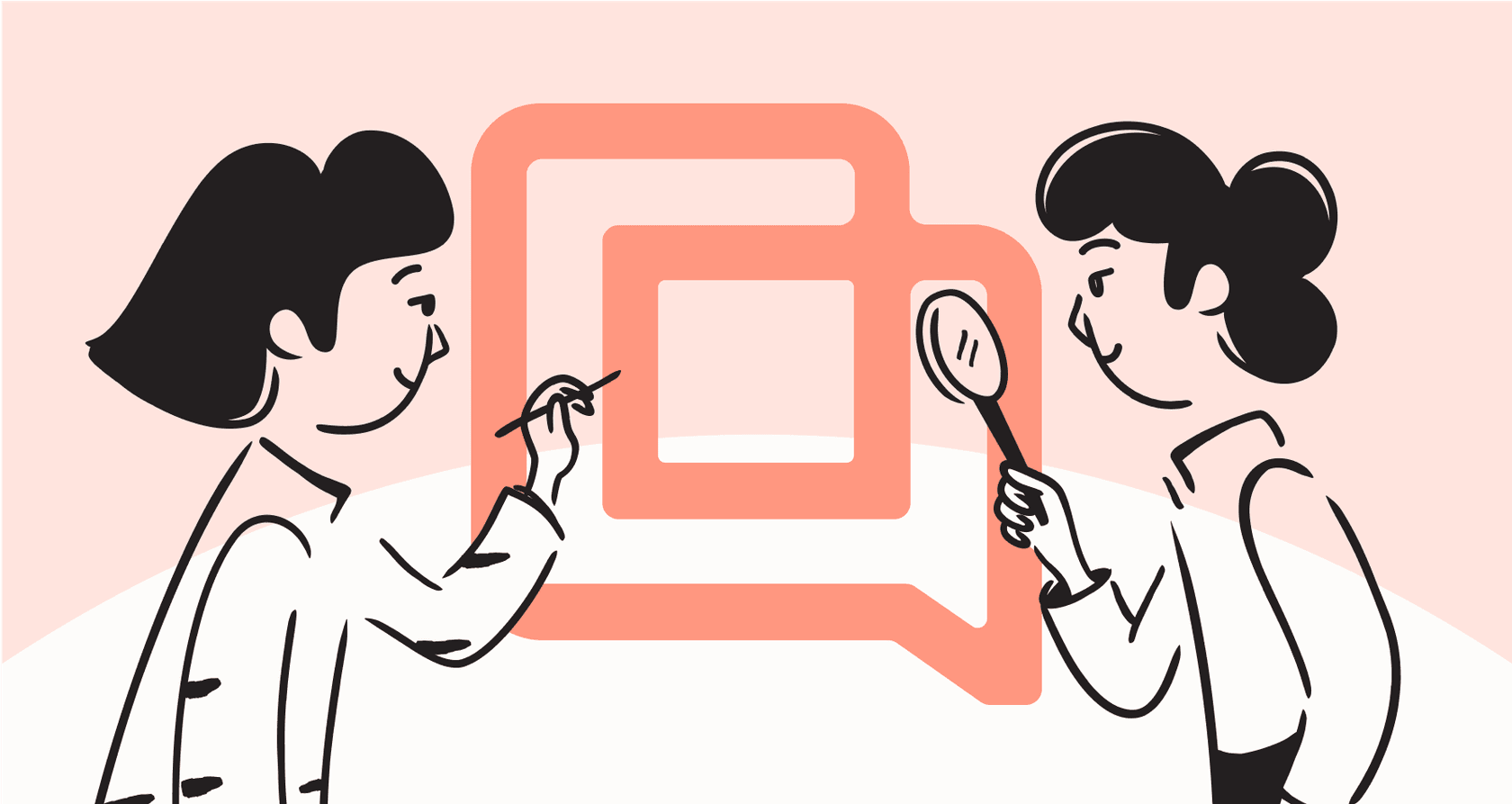An overview of the Gorgias AI support agent in 2026

Kenneth Pangan

Katelin Teen
Last edited January 16, 2026
Expert Verified

If you’re running an ecommerce store, you know the feeling. Customers want answers instantly, day or night, and they definitely won't wait around. Trying to scale a support team to handle that 24/7 demand is a big challenge for any growing brand. This is exactly why AI tools are popping up everywhere, promising to handle the easy questions so your team can focus on complex tasks.
The Gorgias AI support agent is one of the leading names in this space, built right into the Gorgias helpdesk to solve this very problem. It’s designed to answer common questions, help shoppers find what they need, and ultimately, help you sell more. But is it the right tool for your brand? Let's take a closer look. This guide will give you a straight-up look at its features, pricing, and what to keep in mind, so you can decide if it’s a good fit for your business in 2026.
What is the Gorgias AI support agent?
At its core, the Gorgias AI support agent is a conversational AI tool that lives inside your Gorgias helpdesk. It was built from the ground up for ecommerce brands, with a powerful focus on stores running on Shopify.
Think of it as a new team member with two main jobs. First, it’s a Support Agent, handling all the questions that come in after someone makes a purchase. Second, it’s a Shopping Assistant, helping people out before they click the "buy" button.

It learns from your company's knowledge, like help center articles and brand guidelines, and connects directly to your Shopify store for live data. This combo lets it have personalized, on-brand chats with customers around the clock. The whole point is to instantly answer all those repetitive questions like "Where's my order?" so your human agents can deal with the trickier stuff that needs a real person. And on the sales side, it tries to guide shoppers toward a purchase, turning simple questions into actual sales.
Features of the Gorgias AI support agent
To really get a feel for what the Gorgias AI support agent can do, it helps to look at its sales and support skills separately. It’s not just a basic chatbot; it’s meant to be an active part of the entire customer journey.
Boosting sales with the shopping assistant
The Shopping Assistant is Gorgias’s tool for engaging with people browsing your site. It pops up in the chat widget and acts like a virtual sales clerk. Its main goal is to give personalized product recommendations, answer common pre-sale questions, and even offer up a discount code to convince someone who's on the fence.
You can also tweak its "selling style." Want it to be super helpful and educational? Or more direct and promotional? You can set the tone to match your brand. The idea here is to keep people from leaving your site and turn a casual browser into a happy customer.
Streamlining queries
After a customer buys something, the Support Agent takes over. This is where the AI tackles the endless stream of repetitive post-purchase questions that can really bog down a support team. It’s specifically built to automate the classic "Where is my order?" (WISMO) tickets, which probably make up a huge chunk of your inbox.

The agent can do things on its own, like track orders, start the return or refund process, and even make changes to existing orders or subscriptions. It does this using what Gorgias calls "Actions," which let it connect to your other tools to fully close out a ticket without a human ever having to touch it. This works over both email and chat, so you’ve got consistent support on both channels.
How it uses Shopify data and integrations
The real magic behind the Gorgias AI support agent is its deep, native connection with Shopify. It can pull a ton of real-time data, like storefront info, a customer's entire order history, your product catalog, and current inventory. This direct line to Shopify is what lets it give such specific and accurate answers.

While Gorgias connects with over 100 other ecommerce apps, its most powerful features are optimized for the Shopify integration. This is fantastic news if you're a Shopify merchant, as it allows for a highly specialized and seamless experience.
Training the AI and keeping it smart
You get the AI up to speed by connecting it to your knowledge sources. This usually means your Gorgias Help Center, public web pages, and any other documents you upload. From there, you can fine-tune how it works by giving it feedback on the tickets it handles and setting up "Guidance." Guidance is basically a set of custom rules you write to tell the AI exactly how to answer certain questions.

This gives you a good amount of control over the AI's behavior. While Gorgias's AI mostly learns from public-facing content to ensure customer accuracy, teams with a lot of internal knowledge in places like Google Docs or Confluence may find that using a complementary tool alongside Gorgias helps capture every detail of their operations.
Understanding the value: Pricing and considerations
When you're looking at a new tool, it's important to understand how the pricing structure aligns with your growth. The Gorgias AI agent uses a resolution-based model.
Breaking down the resolution-based pricing
The AI features are an add-on to the standard Gorgias plans. You pay for this add-on based on the number of "automated resolutions" it completes. An automated resolution is any ticket the AI handles from start to finish without a human agent stepping in.
This model allows you to pay for successful outcomes. Each resolution typically costs between $0.90 and $1.00. It's important to note that according to Gorgias's pricing options, each AI resolution also counts as a billable helpdesk ticket, reflecting the integrated nature of the platform where automation and human support coexist in one unified system.
| Plan Tier | Monthly Helpdesk Price | AI Resolutions Included | Cost per AI Resolution |
|---|---|---|---|
| Basic | from $50/mo | 60 (at 20% automation) | $0.90 (annual) / $1.00 (monthly) |
| Pro | from $300/mo | 600 (at 30% automation) | $0.90 (annual) / $1.00 (monthly) |
| Advanced | from $750/mo | 2,500 (at 50% automation) | $0.90 (annual) / $1.00 (monthly) |
This resolution-based model means your investment scales alongside your automation success. While this requires some planning for growing teams, it ensures you are focusing on the value of fully resolved tickets. For teams looking for alternative models, tools like eesel AI offer predictable pricing that can work alongside your existing setup.
Considerations for the native AI
When implementing the Gorgias AI agent, there are a few factors to keep in mind to ensure success.
-
Scaling with volume. As your support volume grows, your investment in automation will naturally scale. This makes it a powerful partner for brands that want to correlate their costs directly with customer resolutions.
-
Optimized for Shopify. The Shopify integration is a standout feature, and the AI is built to take full advantage of it. For brands on other platforms, Gorgias still offers great value, though the experience is most seamless for Shopify users.
-
Structured setup process. To ensure the AI represents your brand accurately, you'll want to dedicate time to building out your knowledge base and defining your rules. This upfront work ensures a high-quality experience for your customers.
-
Knowledge source focus. The AI is designed to learn from your public help center to guarantee that it only shares information that is ready for customers. To incorporate internal knowledge from Notion or other team docs, you might consider a complementary tool to assist your AI strategy.
A complementary option
Even if you use Gorgias as your helpdesk, you can enhance your automation strategy with additional tools. You can plug a flexible solution right into your existing Gorgias setup to expand your AI's capabilities.
How eesel AI complements your Gorgias ecosystem
eesel AI is built to work seamlessly with the tools you already have, including Gorgias, adding extra flexibility to your support stack.
-
Rapid implementation. eesel AI is designed for ease of use. You can connect Gorgias and your other knowledge sources in just a few clicks, allowing you to test an AI agent in minutes.
-
Expanded knowledge access. While Gorgias excels at using public help centers, eesel AI can also pull knowledge from your team's internal workflows. It can learn from past tickets, Google Docs, Confluence, and Notion, acting as a great partner to your Gorgias setup by filling in internal knowledge gaps.
-
Risk-free testing. eesel AI includes a simulation mode that lets you test your AI on actual past tickets. This helps you forecast your resolution rate and see the potential impact before you go live for your customers.

- Flexible workflow management. With eesel AI, you can use a workflow builder to customize exactly how automation handles different ticket types. Its interaction-based plans provide a predictable way to manage your automation budget alongside your Gorgias subscription.
Is the Gorgias AI support agent the right choice for your store?
The Gorgias AI support agent is a mature, reliable tool, especially for Shopify-based brands. It's a powerful part of a trusted ecosystem that helps thousands of companies manage their customer service. While you'll want to plan for its resolution-based pricing and its focus on public knowledge sources, it remains a gold standard in the industry.
Gorgias provides a comprehensive and scalable platform that is proven to handle high volumes of support. Before you commit, it's always a good idea to see how complementary tools might fit into your strategy to ensure you're getting the absolute most out of your Gorgias setup.
Your next step to smarter support automation
If you're looking for an AI solution that works within the Gorgias ecosystem and expands your access to internal knowledge, give eesel AI a try for free. It's a great way to see how you can further enhance your Gorgias experience and automate even more tickets with ease.---
Frequently asked questions
The Gorgias AI support agent is a conversational AI tool embedded within the Gorgias helpdesk, designed specifically for ecommerce brands. It functions as both a Support Agent for post-purchase queries and a Shopping Assistant for pre-sale customer engagement.
Its Shopping Assistant feature engages website visitors by offering personalized product recommendations, answering pre-sale questions, and even providing discount codes. This aims to convert casual browsers into purchasers by guiding them toward a sale.
It specializes in automating common post-purchase questions, such as "Where is my order?" (WISMO) tickets. It can also track orders, initiate returns or refunds, and make changes to existing orders or subscriptions using integrated "Actions."
Key considerations include its resolution-based pricing model, its specialized optimization for Shopify, the structured setup process required for high accuracy, and its focus on learning from public help centers to ensure customer-facing consistency.
The Gorgias AI support agent is an add-on feature priced per "automated resolution," meaning you pay for tickets that the AI successfully handles from start to finish. This model ensures you are paying for completed outcomes within your unified Gorgias ecosystem.
The Gorgias AI support agent primarily learns from your public Gorgias Help Center and external web pages to ensure it provides accurate, customer-ready information. For teams with extensive internal documentation, complementary tools can often be used alongside Gorgias to bridge that gap.
While Gorgias is heavily optimized for Shopify to provide the most seamless experience possible, it remains a robust platform for various ecommerce brands. Non-Shopify stores on platforms like BigCommerce or Magento can still benefit from its core ticketing and automation features.
Share this post

Article by
Kenneth Pangan
Writer and marketer for over ten years, Kenneth Pangan splits his time between history, politics, and art with plenty of interruptions from his dogs demanding attention.




